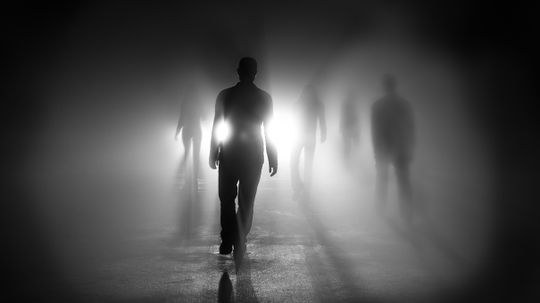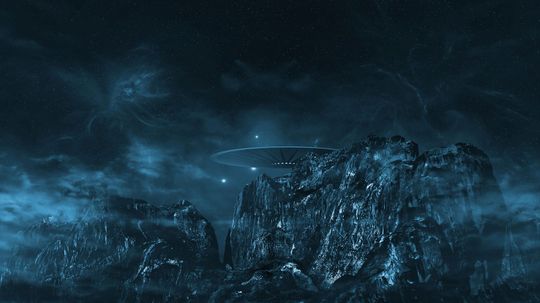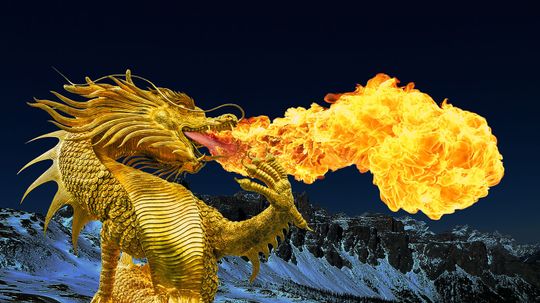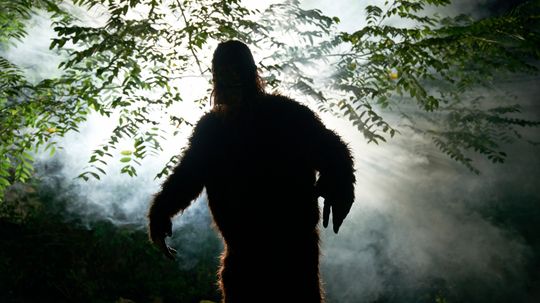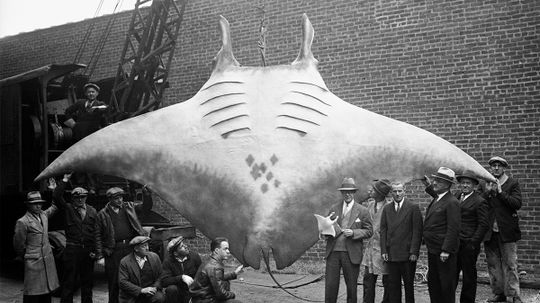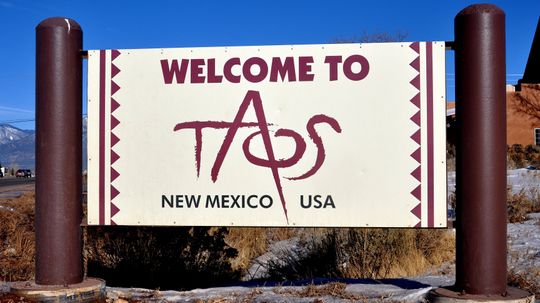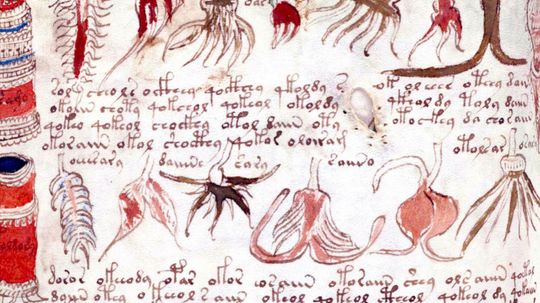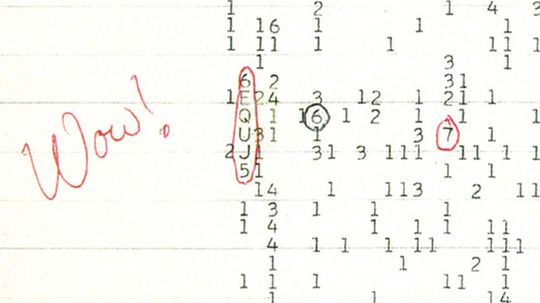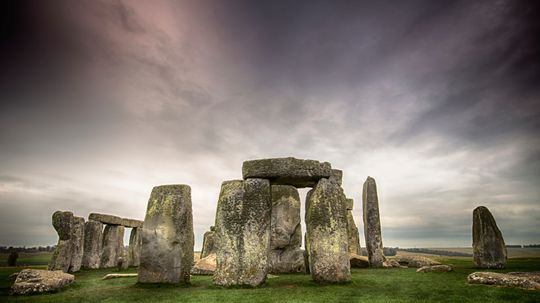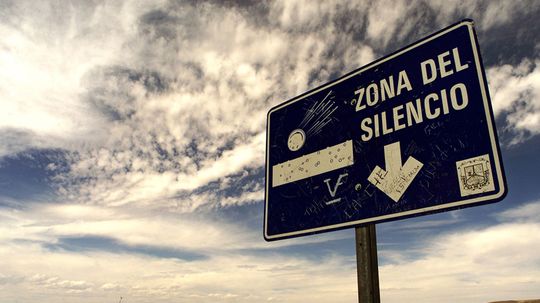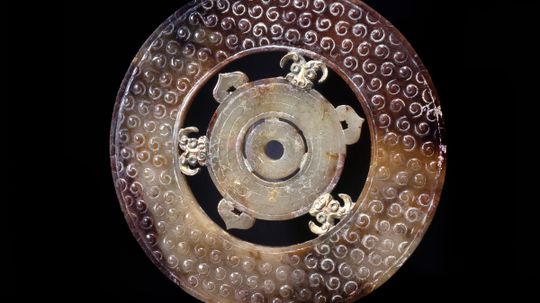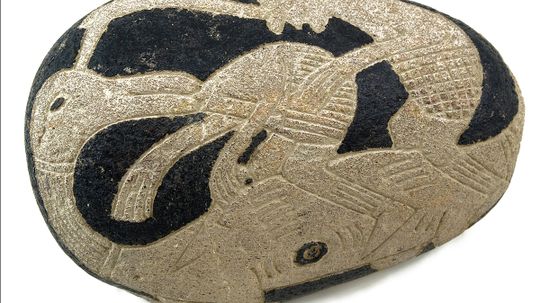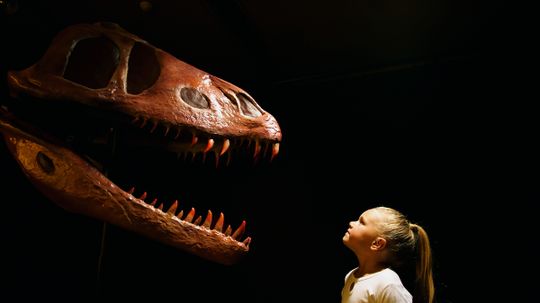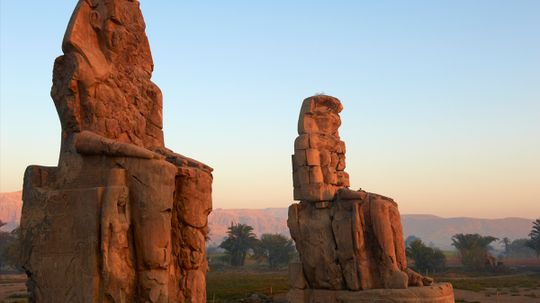Science Versus Myth
Are vampires real? What is an out-of-body experience? Are crop circles proof that aliens exist? HowStuffWorks explores what is real and what is urban legend with this collection of Science Versus Myth articles.

Top 10 Ghost Tours

Top 10 Hotels That Will Scare the Daylights Out of You

What's So Scary About The Winchester House Story?
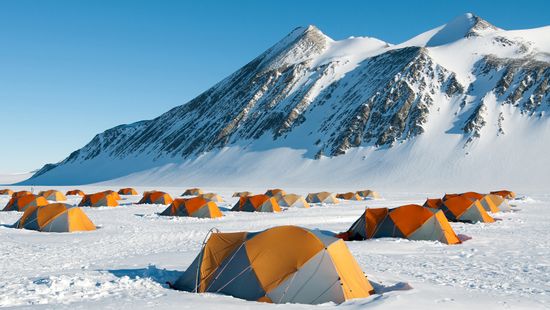
The Pyramid in Antarctica Isn't Actually a Pyramid

The Spiritual Awakening Signaled by the 757 Angel Number

8888 Angel Number Meaning: Prosperity, Abundance, and Spiritual Growth

Spirit Guides Bring Believers Comfort, Insight, and Aid

Psychic Powers: Fun to Consider, Even Without Scientific Support

How to Manifest Love: Merging Mind and Heart
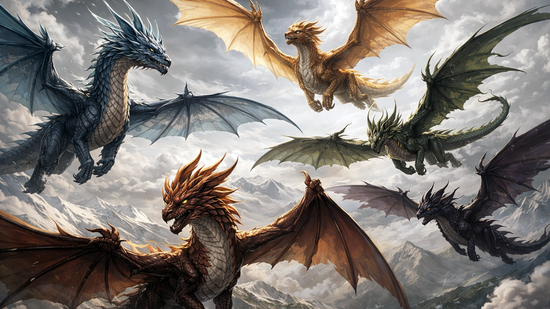
What Is a Group of Dragons Called? It's Almost Too Obvious

The Beast of Bray Road: Wisconsin's Claim to Cryptid Fame

Lougawou: A Haitian Vodou Werewolf

Do Marfa Lights Come From UFOs, Cars, the Military or Ghosts?

Solfeggio Frequencies: Healing Tones or Pseudoscience?

Is Sacred Geometry Related to Science or Is It Simply Beautiful?

What If Cows Didn't Exist?

What If Earth's Magnetic Field Flipped?

What If Humans Could Breathe Underwater?
Learn More / Page 19
From plane crashes and deaths to sports superstitions and hexagrams, many people believe that the number 23 possesses magical properties.
Would they be a mating display? A fierce weapon to defend against lions?
By Robert Lamb & Desiree Bowie
Tourists may not be the only ones to enjoy the beauty of the famous palace.
By Diana Brown
Advertisement
We've yet to find intelligent life outside of planet Earth. But instead of space, should we be looking right here but in other dimensions?
By Diana Brown
A surprising percentage of Americans believe that Big Pharma is hiding the cure for cancer because there's a lot of money to be made treating the disease. Experts explain why this isn't true.
By Dave Roos
If you're considering a hobby or career as a "ufologist" or paranormal investigator, there are a handful of routes that don't involve being personally abducted or applying to a secret government shadow agency.
By Dave Roos
You've heard this bit of hair care advice before, but is it true?
Advertisement
Whether you call it a contrast shower, a Scottish shower or a James Bond shower, it's guaranteed to wake you up. Here's why people are trying it.
Fire will turn a human's teeth to dust. But what about a dragon's?
By Robert Lamb
Very tall, hairy, glowing eyes - that seems to be the go-to description for a lot of mythical monsters out there, especially in America. Here are 10 to keep an eye out for.
Whether we live in fear of a kraken or the Leviathan, humans all around the globe have made sea monsters a part of their cultures. Is there a drop of truth to any of these widespread tall tales?
Advertisement
Hummmmmm. Annoyed yet? Imagine if you heard that sound every night no matter what you did. Likened to a diesel engine idling in the distance, the Hum is a sound some people can never get away from. It's even caused suicide. But is it real?
By Dave Roos
It's a massive book that no one can read, and it has fascinated scientists, historians and cryptographers for decades. Is it a textbook, an encyclopedia ... or an elaborate hoax?
In 1977, SETI volunteer Jerry Ehman saw a transmission so exciting he circled it on paper and wrote the word "Wow!" It seemed to indicate a message from outer space. But what was it really?
The mysteries of Stonehenge have captivated us for centuries: Who built it and why? How did they move those giant stones? Though archaeologists and other researchers have replaced old theories with new ideas, many questions remain.
By Jane McGrath
Advertisement
Was Anna Anderson really Anastasia Romanov? Does the Bermuda Triangle really exist? Wonder no more: We have the answers to these and other formerly unsolved mysteries.
A "law of miracles," you say? What, are people going to get fined for practicing miracles without a license? Is there even a certification program for becoming a miracle worker? No, it's a mathematical law?
We humans have no problem dreaming up superpowers we wish we had. There's flight, invincibility and super strength. But what about pyrokinesis or starting fires with our minds? Is that a real-life thing or comic-book fantasy?
Star jelly sounds like it could be some sort of cosmic spread for toast -- complete with a flashy label boasting, "Now with 50 percent more universe!" Unfortunately, the real story of star jelly is far less tasty -- and far more terrestrial.
Advertisement
The Zone of Silence is Mexico's own Bermuda Triangle, a place where radio signals don't work and an alien might just turn up. But what is the real story behind it?
Ancient caves! Mysterious stones! Tiny little beings with strange heads! Sounds like the plot of an Indiana Jones movie, doesn't it? The legend of the Dropa stones has persisted for over half a century now, but is any of it actually true?
Humans riding dinosaurs: Sounds like a kid's dream come true! History tells us this couldn't possibly have happened, but the Ica stones say otherwise. So is there any truth to these allegedly ancient carvings, or are they just an elaborate hoax?
Whether in "King Kong," "Journey to the Center of the Earth" or "The Lost World," humankind has long held out hope of discovering a secret land filled with prehistoric beasts. But is that even possible? Are dinosaurs still alive?
Advertisement
Fans of the Super Mario Bros. series know that enemy fish can attack from above. And fans of the film "Magnolia" know that sometimes frogs do rain from the sky. But this is purely the realm of pop culture. Things like this don't really happen, right?
Singing monuments sounds like the premise of an enchanted Broadway musical -- or a scene straight out of "A Night at the Museum." So did the Colossi of Memnon actually sing at one time? And if so, why don't they sing anymore? Stage fright?



